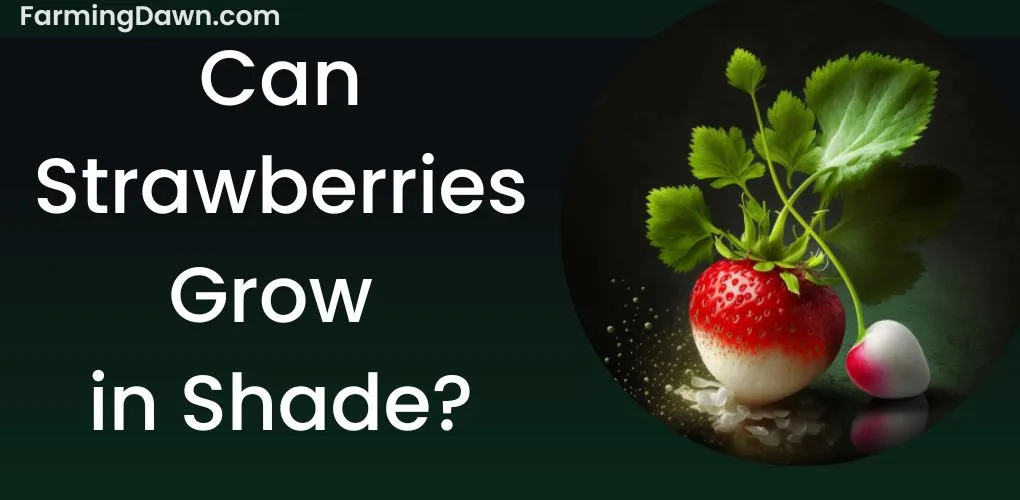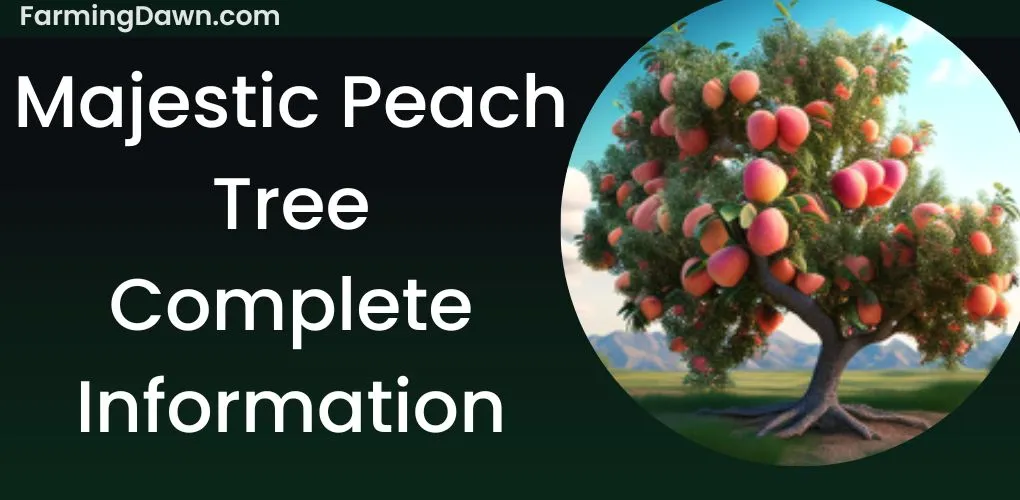We all love strawberries since they are tasty and healthy fruit. What, though, should we do with the leftovers from our strawberry binges? Can you compost strawberries, or do they belong in the trash? Today I will dive into the compostability of strawberries and examine the benefits and best methods of adding strawberries to your compost pile.
Can you Compost Strawberries?
Yes, strawberries can be composted! Composting is a great way to cut waste, make the soil rich in nutrients for your garden, and benefit the environment. Many people are unaware that strawberries, a popular summer fruit, can also be composted, along with other fruit and vegetable scraps.
Strawberries are a fantastic addition to a compost pile since they are rich in nitrogen and give your plants vital nutrients. Additionally, they decompose quickly, which encourages decomposition and compost production.
Advantages of Composting strawberries
Reduces Waste: Composting strawberries has many benefits, one of which is that it lessens the quantity of the trash that ends up in landfills. Mainly if you cultivate them in large quantities, strawberry plants produce a lot of leaves, branches, and berries that can soon accumulate.
Composting these organic waste products can help transform them into valuable resources that can be used to improve your land instead of throwing them away.
Enhanced Soil Health: Strawberries can be composted to help your soil become healthier. Composting produces organic matter that serves to increase soil fertility and structure, which makes it simpler for plants to absorb the nutrients they require to develop.
Composting can also assist in increasing the number of beneficial microbes in the soil, improving soil moisture retention, and minimizing soil compaction.
Saves Money: You can use less commercial fertilizer if you compost strawberries. You may utilize the compost you make to give your plants the nutrients they need to flourish rather than spending much money on fertilizers. This not only helps you save money but also makes your garden more environmentally friendly and sustainable.
Maintains biodiversity: Composting strawberries is also a great way to support biodiversity in your garden. Composting can aid in developing a thriving and diverse ecosystem in your soil by promoting the growth of advantageous microorganisms. This helps your region maintain a wider variety of insects, birds, and other wildlife besides your plants.
Disadvantages of Composting strawberries
High Acidity: Strawberries have a high acidity level, which may cause the pH balance in your compost pile to disrupt. The pH range for a healthy compost pile is 6.0 to 7.5, but the acid in strawberries can cause the pile to be overly acidic.
The decomposition process may be slowed. As a result, making it is challenging for the pile to achieve the ideal temperatures for composting.
Pest Attraction: Because strawberries are delicious and juicy, pests like rodents and birds find them a tasty treat. You risk luring these pests to your compost pile if you compost strawberries. This could make a mess and bring dangerous bugs into your garden.
Long Decomposition Period: Strawberries require more time to break down than other compostables. This implies that you might have to wait longer to utilize compost in your garden if you compost strawberries. This can be a hassle if you need to utilize the compost quickly for planting or wish to often change your composting materials.
Smell: Strawberries give forth a pungent smell as they break down. This can be unpleasant and might make your compost pile more attractive to pests. You can mix the strawberries with other compostable materials, like leaves and grass clippings, to help absorb the fragrance and lessen the odor.
Mold: Strawberries are susceptible to developing mold if they are not composted correctly. In addition to being unattractive to look at, mold may also be harmful to you and your plants. Keep your compost moist but not soggy, and mix the pile frequently to aerate it to stop mold from forming.
How to compost strawberries
Select a compost bin or location: You can buy a compost bin or make a compost area in your yard. Ensure the area is easily accessible, has good drainage, and is in a shady spot to keep the compost from overheating.
Gather materials: You’ll need to gather your strawberries and other compostable garbage, like eggshells, coffee grounds, vegetable and fruit scraps, and yard waste. Meat, dairy products, and oils shouldn’t be composted because they can attract bugs and produce unpleasant aromas.
Start layering: Spread a layer of brown materials, such as straw or dried leaves, at the bottom of your bin or compost area. Next, add a layer of green materials, such as coffee grounds and leftover fruit and vegetable scraps, as you build your pile, and alternate layers of brown and green materials until it reaches a height of at least three feet.
Water the pile: Ensure it is damp but not drenched by watering it. Watering the pile will speed up the composting process and stop foul odors from developing.
Turn the pile: Use a garden fork to turn the pile every week or two to promote oxygen circulation and hasten the decomposition process.
Wait for compost: A few months may pass before the strawberries and other items completely break down into compost. When the compost is black, crumbly, and has a strong, earthy aroma, it is finished.
Use the compost: Use the compost by sprinkling it in your garden beds and around your plants. The compost will provide nutrients to the soil and help your plants grow strong and healthy.
Factors to consider when composting strawberries
Moisture: Composting requires a balance of moisture to break down the organic matter and create nutrient-rich compost. A moisture buildup will hinder decomposition and lead to anaerobic conditions that will smell bad and draw pests.
The composting process will be slowed down by insufficient moisture, making it challenging for microorganisms to break down the organic materials. Add water as necessary to maintain the ideal moisture level, and cover the compost pile with a lid or tarp to stop rain from washing away the moisture.
Oxygen: Because it gives microbes the energy they need to decompose organic materials, oxygen is essential for the composting process. Turn the compost pile frequently to aerate the material and mix the fresh material with the older material to guarantee appropriate oxygen flow.
Carbon-to-nitrogen ratio: The carbon-to-nitrogen ratio (C:N) is a gauge of the composition of the compost in terms of carbon and nitrogen. The optimum C:N ratio for composting is between 25:1 and 30:1.
Temperature: A vital sign of the composting process is the compost pile’s temperature. To eliminate any pathogens and weed seeds, the compost pile’s interior temperature should rise to between 131 and 170 °F. The composting process has slowed down if the temperature drops below 131°F, so you should turn the pile to aerate it and add additional oxygen.
Dimensions of the compost pile: The size of the compost pile should also be taken into account. The composting process will take longer if the pile is too small, and it might not attain the extreme temperatures necessary to eradicate diseases and weed seeds.
Turning and maintaining the ideal moisture and temperature levels will be challenging if the pile is too large. Composting is best done in a pile 3 to 5 feet wide, 3 to 5 feet tall, and 3 to 5 feet deep.
Can you compost strawberries? Video Explanation
Can Compost Be Placed onto Strawberry Plants?
Strawberry plants can be used to make compost, which can then be used to promote the growth of strawberry plants. When fertilizing strawberry plants, it’s essential to use mature, well-rotted compost to avoid potential damage to the plant’s delicate roots.
Instead of covering the plant’s crown, it is best to spread a thin layer of compost around the base of the plant. If compost is softly incorporated into the soil and fully absorbed, it can be prevented from drying out and blowing away.
Use caution while adding compost to your garden because it contains weeds and germs that might harm strawberry plants. If the compost is not digested correctly and heated to high temperatures, hazardous germs and diseases might infect the soil. Furthermore, excessive compost application may result in over-fertilization, increasing leaf growth at the price of fruit output. This could make the plants more vulnerable to diseases and pests.
Can You Use Ericaceous Compost for Strawberries?
One aspect of growing strawberries that often confuses gardeners is what compost to use. Some people recommend using ericaceous compost, while others argue it is unsuitable for strawberries.
What is Ericaceous Compost?
Ericaceous compost is a type of soil that is specifically designed for plants that prefer acidic conditions. Rhododendrons, azaleas, and camellias are ericaceous plants that flourish well in soil with a pH of between 4.5 and 5.5. The organic matter content of this sort of compost, which is often created from peat moss, helps to reduce the pH of the soil.
Why Use Ericaceous Compost?
Ericaceous compost can help your strawberry plants in a number of ways. One benefit is that it may aid the soil’s structure, facilitating plants’ ability to absorb nutrients. Additionally, abundant in organic matter, this compost aids in the growth of strong roots and overall plant health.
Can You Use Ericaceous Compost for Strawberries?
Strawberries are not ericaceous plants and do not require acidic soil to grow. Strawberries thrive in soil that is between neutral and slightly acidic at a pH of 6 to 6.5. Ericaceous compost can be used for strawberries, but it’s crucial to keep in mind that doing so will cause the pH of the soil to decrease, which may not be suitable for your plants.
If you use ericaceous compost for strawberries, you might need to add lime or wood ash to the soil to change the pH level. This will help the soil regain a more balanced pH, making it better for your strawberries to grow.
Can you put fruit in compost?
The answer is yes, you can compost fruit. Fruit is a fantastic addition to your compost pile because it offers valuable nitrogen, which is crucial for healthy soil. Before you begin composting fruit, there are a few potential drawbacks.
Pros of Fruit Composting
- Fruit offers essential nitrogen, which aids in decomposing other components in the compost pile and encourages the development of healthy soil.
- Fruit leftovers are a convenient and frequently accessible source of compostable materials.
- Fruit can help you compost more effectively and be more environmentally friendly by reducing food waste.
Cons of Fruit Composting
- Fruit can draw insects and other pests to your compost container, including fruit flies.
- Fruit can also emit a potent, disagreeable smell from the compost pile if it needs to be adequately balanced with other debris.
- Fruit that is overripe or moldy may include diseases that are bad for plants, so it’s crucial to compost it properly to eliminate any harmful germs.
Can you compost strawberry tops?
Yes, you can compost strawberry tops. They create great compostable material. Nitrogen and other elements vital for plant growth are abundant in strawberry tops. They decompose quickly in a compost pile, giving your garden soil beneficial nutrients.
Composting strawberry Tops
It’s crucial to slice strawberry tops into little pieces before composting them. This will help them decompose more quickly and have a larger surface area. The tops can be chopped by hand or in a food processor. Please make ensure that the pieces are little enough for composting bacteria to break them down readily.
Additionally, it’s crucial to balance the brown matter (carbon-rich material), such as leaves, straw, or sawdust, with the green matter (nitrogen-rich material) from the strawberries. Your compost pile will remain balanced and decompose effectively as a result.
If you have a home compost pile, you may add your chopped strawberry tops, along with other kitchen leftovers and yard trash. To guarantee proper aeration and moisture content, mix the items thoroughly. To keep your compost pile moist and stop it from drying out, it’s a good idea to cover it with a tarp or another type of cover.
You can still compost your strawberry tops even if you don’t have a compost pile by using a compost bin. Compost bins come in a wide range of shapes and sizes, so it’s simple to choose one that will fit in your home. Put your chopped strawberry tops and other biodegradable debris in the bin, and flip the bin occasionally to guarantee proper aeration.
Can you Compost Strawberries? Conclusion
Thus, can you compost potatoes? The answer is a resounding yes. Whether you choose to compost the leaves, stems, or entire fruit, these sweet and juicy berries are a valuable addition to any composting program. I sincerely hope my information was useful and you got the most out of it.
Each plant has its composting process and requirements. Read my other articles to learn more:






